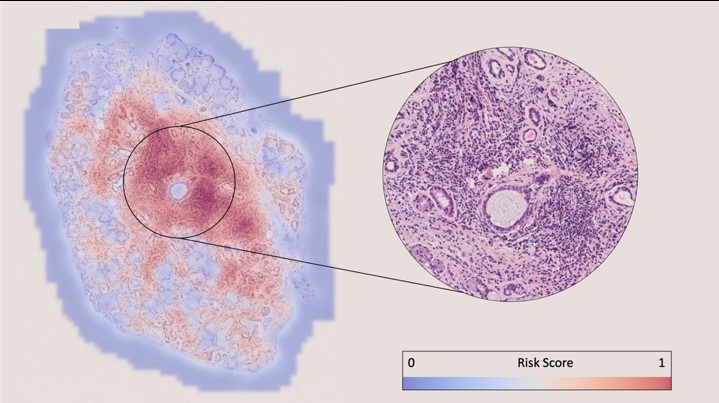Session Information
Session Type: Abstract Session
Session Time: 2:00PM-3:30PM
Background/Purpose: Primary Sjögren Syndrome (pSS) diagnosis relies on the weighted sum of three EULAR/ACR 2016 criteria: i) quantification of lymphocyte infiltration in labial salivary gland (LSG) biopsies, ii) autoantibody status and iii) objective quantification of eye and mouth dryness. Diagnosing pSS is highly challenging and the histological interpretation of LSG tissue requires specific expertise. It poses a challenge to non-specialized centers as highlighted by Vivino et al. [1] who show up to 53% of diagnosis reclassification after expert center rescoring. This analysis is critical and involves the determination of the focus score (FS), where a score ≥1 confirms the histological criteria for pSS. With mounting evidence underlining the potential of artificial intelligence in assisting pathologists, we aimed to develop two deep learning models using LSG biopsies only: one to automatically assess the FS (≥ 1 or < 1), and one to predict pSS diagnosis. Furthermore, we put effort in implementing explainable models highlighting the subregions of the biopsy leveraged for the prediction.
Methods: Deep learning models were developed using digitalized LSG slides from patients from three European expert centers taking part in the NECESSITY consortium, a European H2020 IMI2 project. Three patient groups were included: sicca patients with a FS < 1, pSS patients with a FS ≥ 1, and pSS patients with a FS < 1. All pSS diagnoses were confirmed by rheumatologists from expert centers and satisfied the EULAR/ACR 2016 classification criteria. Models were trained on 70% of the patients and validated on the remaining 30%. Algorithm performance was measured using the area under the receiver operating characteristic curve (AUROC), positive and negative predictive values (PPV and NPV), specificity and sensitivity. The models provide risk scores for each biopsy subregion, these scores explain how predictions of FS and pSS are computed.
Results: The dataset included a total of 325 patients: 145 from Paris-Saclay University (Bicêtre Hospital), 71 from Queen Mary University of London and 109 from the University of Birmingham. In the validation set, the model achieved an AUROC of 0.88 (95% CI 0.85 to 0.90) for binary assessment of the FS (≥ 1 or < 1); and 0.84 (95% CI 0.83 to 0.86) for predicting pSS diagnosis. Analysis of histological subregions selected by the model determining the FS unsurprisingly revealed regions with a high concentration of lymphocytes (Figure 1). Detailed performance results for both models are available in Table 1.
Conclusion: Deep learning can predict both the FS and pSS diagnosis with high accuracy using digitalized LSG slides only. The FS model could serve as a valuable tool to assist pathologists who may not specialize in oral pathology, reducing their reliance on reference centers. Furthermore, this study paves the way for a better understanding of pSS physiopathology: the determination of the regions selected by the algorithm for the diagnosis of pSS in FS negative patients is in progress, with up to now a highlight on lympho-epithelial lesions.
[1] Vivino FB et al. Change in final diagnosis on second evaluation of labial minor salivary gland biopsies. J Rheumatol. 2002 May;29(5):938-44. PMID: 12022353.
To cite this abstract in AMA style:
Basseto L, Duquesne J, Barnes M, Pontarini E, Gallagher-Syed A, Bombardieri M, A Fisher B, Nayar S, Adam C, Lazure T, Mariette X, Bitoun S, Bouget V. Deep Learning Accurately Predicts Focus Score and Diagnosis of Primary Sjögren Syndrome Using Labial Salivary Gland Biopsies [abstract]. Arthritis Rheumatol. 2023; 75 (suppl 9). https://acrabstracts.org/abstract/deep-learning-accurately-predicts-focus-score-and-diagnosis-of-primary-sjogren-syndrome-using-labial-salivary-gland-biopsies/. Accessed .« Back to ACR Convergence 2023
ACR Meeting Abstracts - https://acrabstracts.org/abstract/deep-learning-accurately-predicts-focus-score-and-diagnosis-of-primary-sjogren-syndrome-using-labial-salivary-gland-biopsies/


